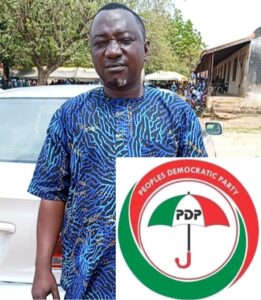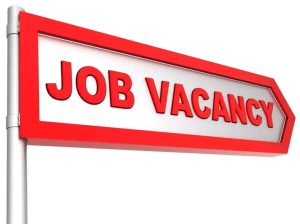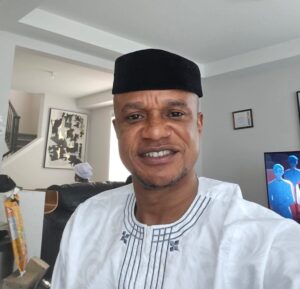Conversations surrounding the decline in Nigeria’s Gross Domestic Product (GDP) per capita have begun to dominate news headlines amid recent concerns raised by Dr Akinwumi Adesina, President of the African Development Bank (AfDB).

In February, the International Monetary Fund (IMF) said Nigeria’s GDP per capita, when measured in dollars, had dropped from $877 in 2024 to $835 in 2025. This paints a grim picture of the standards of living and average income of Nigerians.
By global standards, a decline in GDP per capita generally means that average income is falling and economic growth is not keeping pace with population growth.
During the 20th anniversary dinner of Chapel Hill Denham, an investment firm in Lagos, on Thursday, Adesina said Nigerians were worse off in 2025 than they were 64 years ago.
“Our GDP per capita in 1960 was $1,847. Today, it stands at $824. Nigerians are worse off than 64 years ago,” the president of AfDB said.
ALSO READ: Funke Akindele Reveals the Grind Behind Her Success in the Movie Industry
Some of the challenges identified in countries with low GDP per capita include political instability, inadequate infrastructure and heavy reliance on agriculture, which could hinder economic development.

For Adesina, Nigeria is at risk of remaining stagnant unless the long-standing issues of electrification, infrastructure and logistics bottlenecks are adequately addressed.
“Without reliable power, Nigeria’s economy will be locked in a never-ending slow growth trajectory, without transformation,” he said.
“You cannot industrialise, you cannot compete, and you certainly cannot create jobs at scale if you don’t have electricity. Access to power is not just about lights, it’s about productivity, competitiveness and prosperity.”
Need protein drink? Try cockroach milk – Report
Adesina also said Nigeria must build world-class infrastructure, such as expressways, railways, speed trains, airports, seaports, telecommunications and broadband connectivity. According to him, infrastructure is the foundation of every competitive economy.
“If we do not fix our logistics bottlenecks, we will continue to lose in the African Continental Free Trade Area. Let us be clear, no investor will stay in a market where they cannot move goods efficiently or communicate seamlessly,” Adesina explained.
Between 2015 and 2025, Nigeria’s GDP has experienced a steady decline. Data obtained on the IMF’s website shows that the GDP per capita of Nigeria was $2,728 in 2015.

ALSO READ:
Nigeria Not Happier Than 104 Countries in the World— Report
Why More Nigerians Will Be Poorer 2026–2027— Report
An earlier publication by FIJ identifies the devaluation of the naira as the main reason for this decline. In 2023, when President Bola Tinubu took over the reins of governance, the GDP stood at $1,637.
From $1,637 in 2023, it dropped to $824 in 2024. And as the GDP declined on one side, the value of the naira has equally decreased. This is no thanks to some exchange rate policies of the current administration. One such policy is the floating of the naira in 2023, a move experts said could lead to the total collapse of the currency.
Back in 2015, when the GDP was $2,728, the national minimum wage was N18,000, and the exchange rate was approximately N197 per dollar. This makes the minimum wage of 10 years ago $90 when converted.

Although the current administration increased the national minimum wage to N70,000, making it seem as though Nigerians now earn more, it does not make much difference and does not translate into real financial improvement considering the devalued state of the currency.
While it seemed as though Nigerians earned less in naira 10 years ago (based on the N18,000 minimum wage), N70,000 is approximately $43.65 in May.

A Nigerian who made N100,000 in profit in 2015 is richer than a Nigerian who currently makes the same amount in profit. With the exchange rate now hovering around N1,500 to a dollar, N100,000 is just about $67. In 2015, N100,000 was $502.
ALSO READ: Just In: NIMC Sends Important Message to Nigerians – A MUST-READ by all
When President Bola Tinubu took office in 2023, the minimum wage was N30,000. It was equivalent to about $65. The current minimum wage of N70,000 is only $47 when converted in 2025.
The same way N100,000 held more value in 2015, a Nigerian who was earning N30,000 in 2023 is technically better off than someone earning N70,000 in 2025.

If there is one thing the analysis above shows, it would be the fact that the purchasing power of Nigerians has eroded so much over just a few years. And just as the president of the AfDB posited, the reality might worsen in the coming years if Nigeria’s economy fails to demonstrate real growth soon.
Credit: FIJ
Never Miss a Single News or Updates, Kindly Join Our WHATSAPP Group
https://chat.whatsapp.com/K16yYM73c42AvSAYuXsSz3








